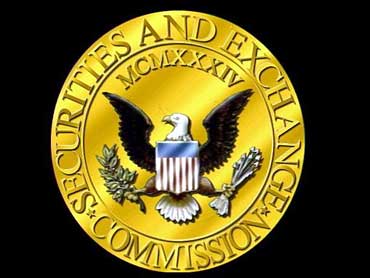 Amid the storm of pay-to-play scandals and as pay-to-play has become an increasingly hot-button state issue, the Securities Exchange Commission (the “SEC”) stepped in on August 3, 2009 to propose measures at the federal level intended to eliminate or at least curtail “pay-to-play” practices. The measures are aimed to regulate the practice of money managers making political contributions or hidden payments in hopes of winning business from government officials and conversely government officials soliciting political contributions by guaranteeing an award of business. Although the SEC has initiated fraud cases in the past related to kickbacks in pay-to-play schemes, the proposed rules seek to comprehensively address the growth of the government pension plan market and the alleged evils related to its expansion.
Amid the storm of pay-to-play scandals and as pay-to-play has become an increasingly hot-button state issue, the Securities Exchange Commission (the “SEC”) stepped in on August 3, 2009 to propose measures at the federal level intended to eliminate or at least curtail “pay-to-play” practices. The measures are aimed to regulate the practice of money managers making political contributions or hidden payments in hopes of winning business from government officials and conversely government officials soliciting political contributions by guaranteeing an award of business. Although the SEC has initiated fraud cases in the past related to kickbacks in pay-to-play schemes, the proposed rules seek to comprehensively address the growth of the government pension plan market and the alleged evils related to its expansion.
According to SEC Chairman Mary Schapiro, “Pay to play practices can result in public plans and their beneficiaries receiving sub-par advisory services at inflated prices. Our proposal would significantly curtail the corrupting and distortive influence of pay to play practices.” As one commentator has stated “so Shapiro is trying to be proactive, reducing…the near occasions of sin.” The rule is intended to help ensure advisory contracts are awarded on professional competence and not political influence. However, as SEC Commissioner Luis Aguilar has cautioned, pay-to-play conduct “is incredibly hard to police.”
The new rule, which revisits a 1999 SEC proposal that was not finalized in part due to monitoring concerns, would prohibit an investment adviser from providing advisory services for compensation to a government client for two years after the adviser makes a contribution to certain elected officials or candidates. Like the 1999 SEC proposal, the proposed rule is modeled on rules G-37 and G-38 of the Municipal Securities Rulemaking Board (“MSRB”), which address pay to play practices in the municipal securities markets. The SEC has couched the rule as a two-year “time out” on conducting compensated advisory business with a government client after a contribution is made and not as a limitation or outright ban of political contributions.
The proposal would also forbid an adviser from providing or agreeing to provide, directly or indirectly, payment to any third party for a solicitation of advisory business from any government entity on behalf of such adviser. Additionally, it would prevent an adviser from soliciting from others, or coordinating, contributions to certain elected officials or candidates or payments to political parties where the adviser is seeking government business. New recordkeeping requirements that would require a registered adviser to maintain certain records of the political contributions made by the adviser are also proposed.
The implications of the proposed measures could be wide ranging. For example, the new recordkeeping rules may have the unintended effect of causing non-U.S. advisers to private pools not to accept investments from U.S. government entities in order to avoid onerous record keeping requirements. In addition, commentators have speculated that the proposed ban on the use of third parties (like placement agents) would make it difficult for smaller and newer funds to develop business because such funds would not have existing contacts with the managers of public pools of capital. The uneven playing field for small funds in turn could limit the investment choices of pension plan officials, who may not have the time and resources to evaluate potential investment opportunities. The SEC seeks comments to address these and other possible pitfalls associated with its proposal.

